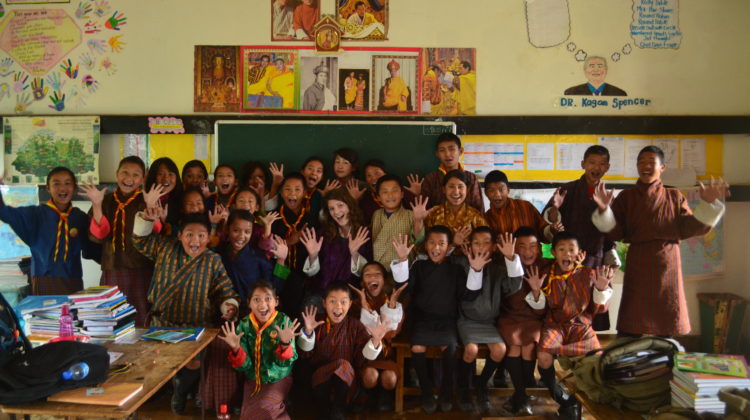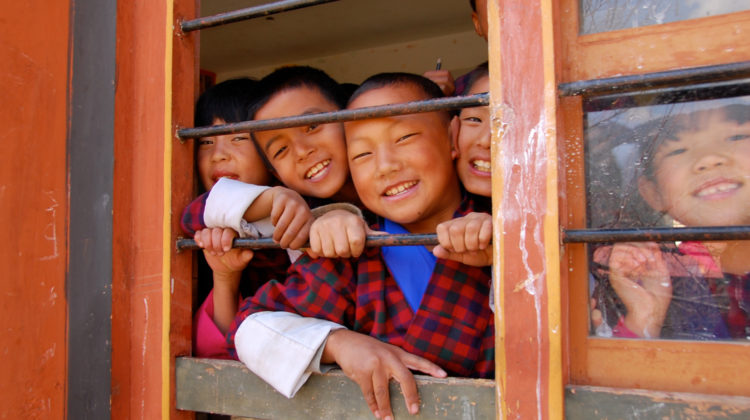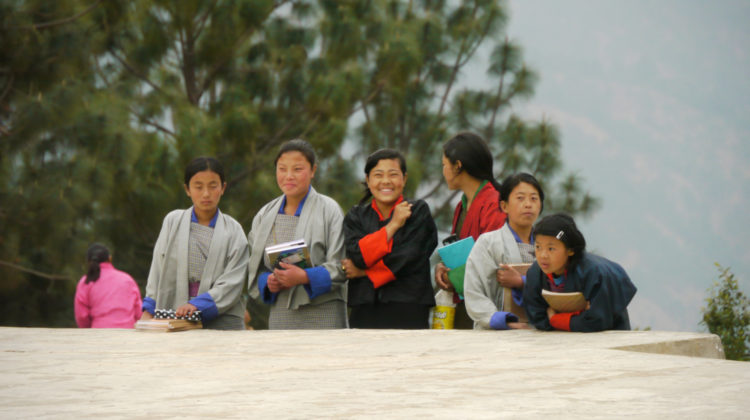March 20 is the International Day of Happiness. It is also the day that the annual World Happiness Report is released. The Report, edited by renowned academics John Helliwell, Richard Layard and Jeffrey Sachs, ranks the world’s countries by the level of subjective happiness among their citizens (the 2019 Report can be accessed here). This year’s Report also analyzes the ways in which interactions within communities are changing, and the implications of this change for happiness. Central to the Report’s analysis is an exploration of the influence of digital media use on happiness.
“An ICT-enabled, knowledge-based society as a foundation for Gross National Happiness” E-Government Master Plan, 2014
The evolution of the role of information and communications technology (ICT) in Bhutan, and digital media in particular, is an interesting one. It is best viewed through the lens of Gross National Happiness (GNH). Gross National Happiness was initiated by Bhutan’s fourth King several decades ago and is the country’s national development strategy. It is a strategy that recognizes there is more to people’s wellbeing than simply increasing wealth. It articulates an understanding of development that incorporates cultural, environmental, socio-economic and governance pillars. As such, GNH is an attempt to construct development in a holistic manner that addresses the multiple dimensions of being human.
The nature of GNH, and its pillar focused on protecting Bhutan’s traditional culture in particular, meant that technology that brought global influences into the country was initially not allowed. Only in 1999 did the government allow the introduction of television and, soon after, the internet. Technological evolution, however, ultimately led to a shift in focus. Digital technology’s growing reach and pervasiveness represented an opportunity to pursue Gross National Happiness more effectively. Effective use of digital technology can enhance education, increase knowledge within a democratic citizenry, improve access to social services and generally expand opportunities, all components of GNH. By 2014, the Bhutanese government’s E-Government Master Plan recognized ICT as the key to GNH, outlining the country’s technological vision as “An ICT-enabled, knowledge-based society as a foundation for Gross National Happiness.” Bhutan’s embrace of ICT and digital technology has since been significant. According to the World Bank, mobile phone use in Bhutan has grown from 0.4% in 2003 to 87% in 2015. Internet use also grew from 0.1% to 40% between 1999 and 2015, with all of Bhutan’s districts now connected through fiber optic cable. Bhutan is rapidly becoming a digital society.

Photo credit: Cameron Brown
Back to the 2019 World Happiness Report: What has this increasing Bhutanese embrace of digital technology meant in practice for a society pursuing Gross National Happiness? There are some very positive impacts. For example, a Government to Citizen Services (G2C) online initiative has contributed to good governance, one of the pillars of GNH, through more effective and transparent government services. The expansion of digital media, however, raises some concerns for a GNH society. The World Happiness Report analyzes the impact of digital screen time – social media, gaming and internet surfing – on American youth. The findings, while perhaps not surprising, are notable. The amount of screen time has increased dramatically among American youth since 2012. Face-to-face interactions, religious or spiritual practices and sleeping time, in contrast, have decreased. This change has implications for happiness. According to the Report: “In short, adolescents who spend more time on electronic devices are less happy, and adolescents who spend more time on most other activities are happier” (p. 92).
“Adolescents who spend more time on electronic devices are less happy, and adolescents who spend more time on most other activities are happier” World Happiness Report
The average screen time in Bhutan may not yet be the same as in the USA, but the rapid expansion of digital media, and the increasing use by Bhutanese of social media in particular, may contribute to a future situation similar to the one outlined in the World Happiness Report. As anonymous screen time increases, so too may less respectful interactions among people and growing unhappiness, all further paralleled by a decrease in those factors the Report outlines as increasing happiness: time spent in face-to-face interactions, spiritual or religious practices, and adequate sleeping. Significantly, each of these happiness factors from the Report are also key indicators in how Bhutan actually measures GNH (see here for more information on the GNH Index).
This concern is nothing new for the Bhutanese public. There are already significant concerns within the country on social media’s potentially corrosive effects on people’s increasingly anonymous interactions and subsequent unhappiness (for some examples, see here, here, here and here). The findings of the 2019 World Happiness Report therefore suggest Bhutan needs to remain vigilant in how it harnesses the clear benefits of digital media while proactively addressing the potentially negative influence on happiness. Fostering respectful digital media literacy will be critical for a successful GNH society.







